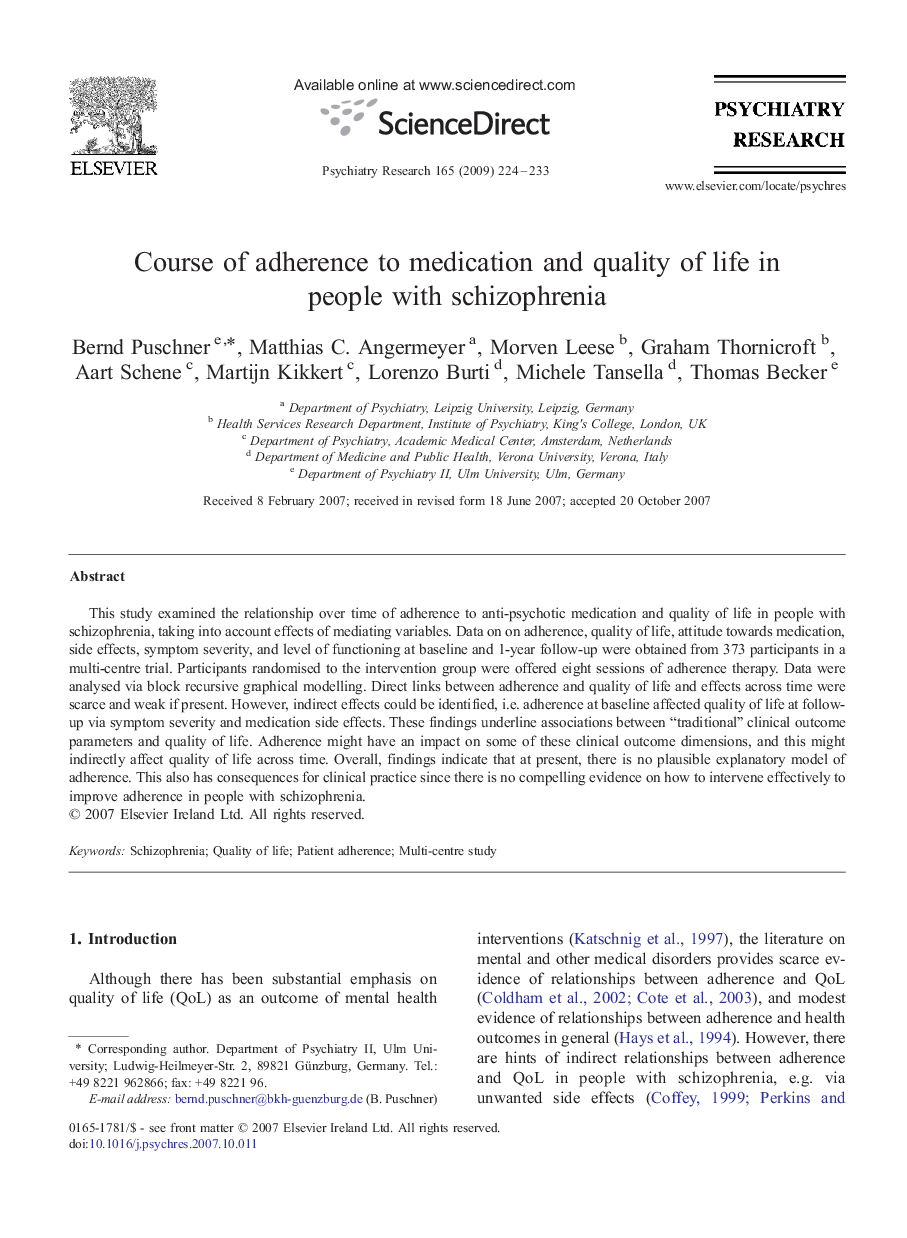| Article ID | Journal | Published Year | Pages | File Type |
|---|---|---|---|---|
| 332001 | Psychiatry Research | 2009 | 10 Pages |
This study examined the relationship over time of adherence to anti-psychotic medication and quality of life in people with schizophrenia, taking into account effects of mediating variables. Data on on adherence, quality of life, attitude towards medication, side effects, symptom severity, and level of functioning at baseline and 1-year follow-up were obtained from 373 participants in a multi-centre trial. Participants randomised to the intervention group were offered eight sessions of adherence therapy. Data were analysed via block recursive graphical modelling. Direct links between adherence and quality of life and effects across time were scarce and weak if present. However, indirect effects could be identified, i.e. adherence at baseline affected quality of life at follow-up via symptom severity and medication side effects. These findings underline associations between “traditional” clinical outcome parameters and quality of life. Adherence might have an impact on some of these clinical outcome dimensions, and this might indirectly affect quality of life across time. Overall, findings indicate that at present, there is no plausible explanatory model of adherence. This also has consequences for clinical practice since there is no compelling evidence on how to intervene effectively to improve adherence in people with schizophrenia.
